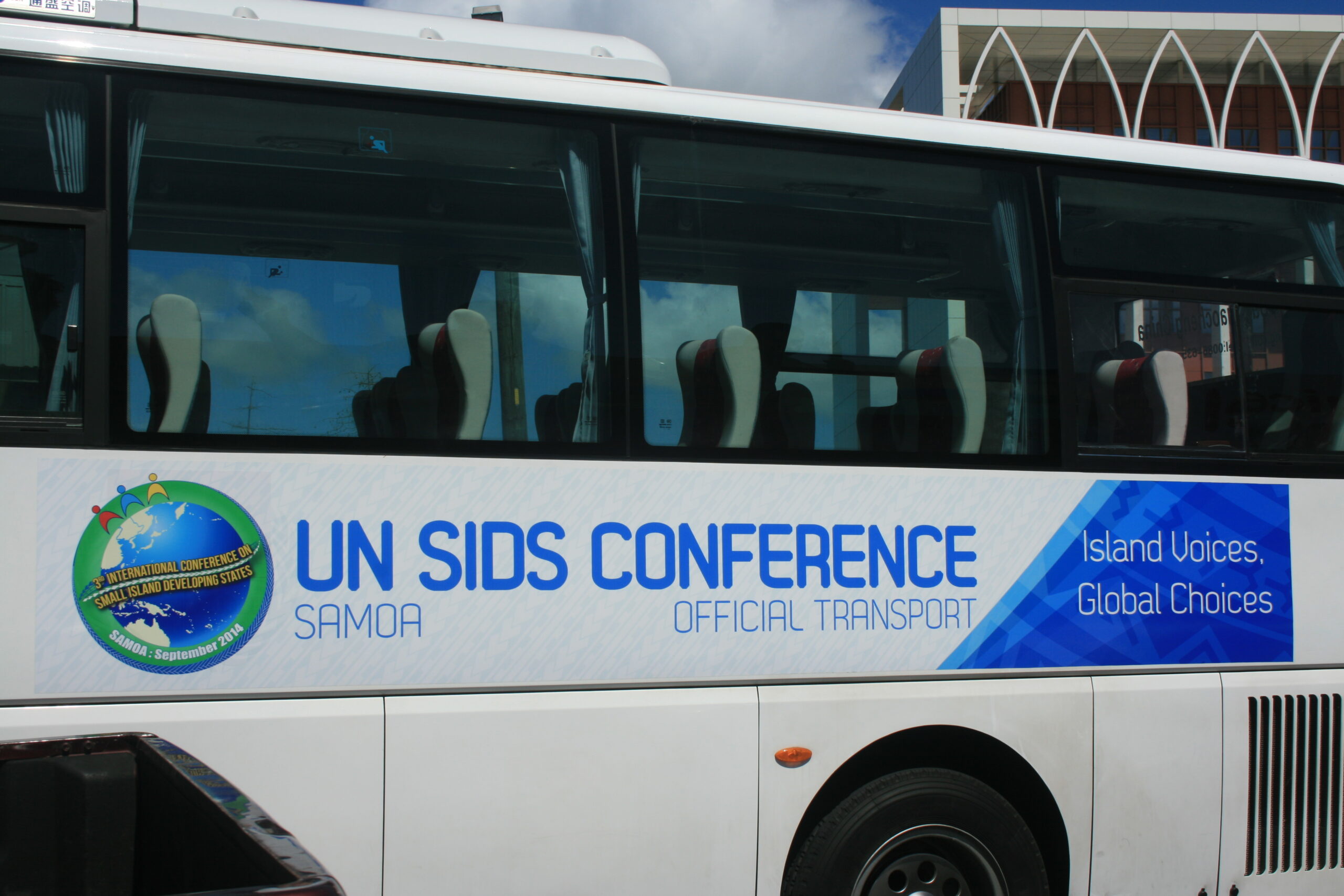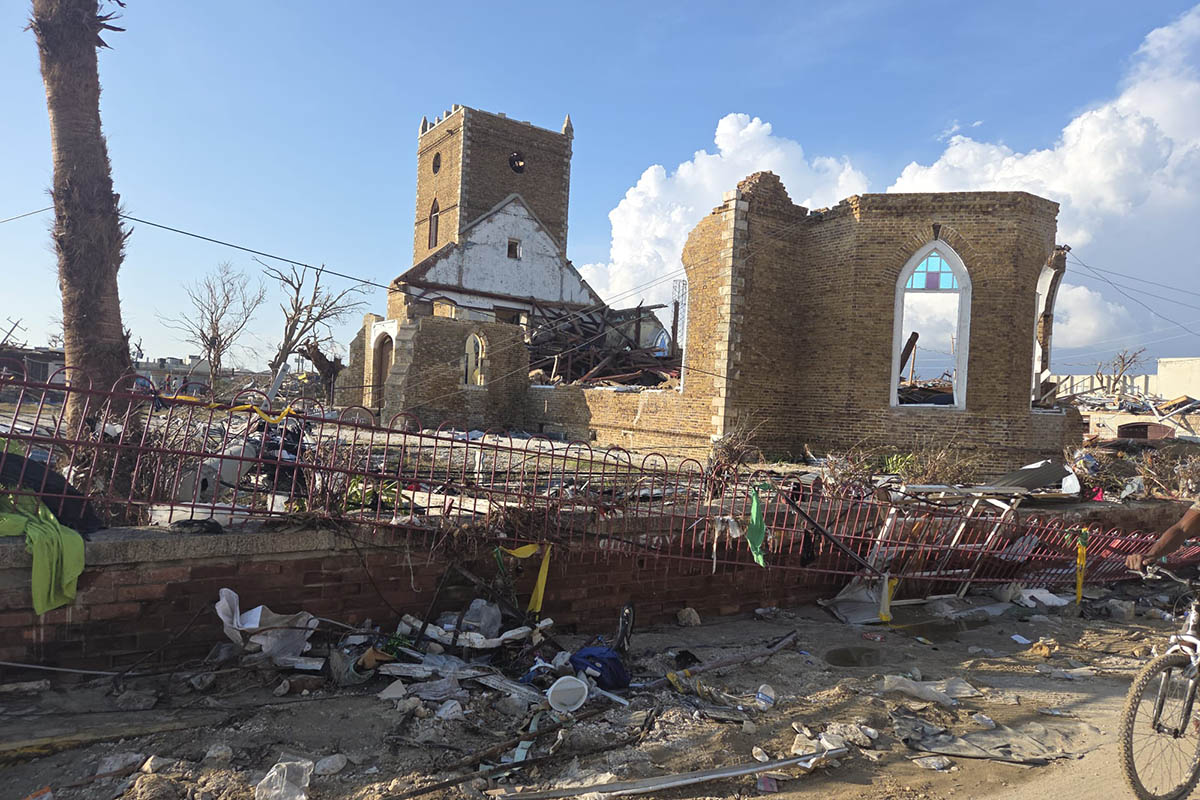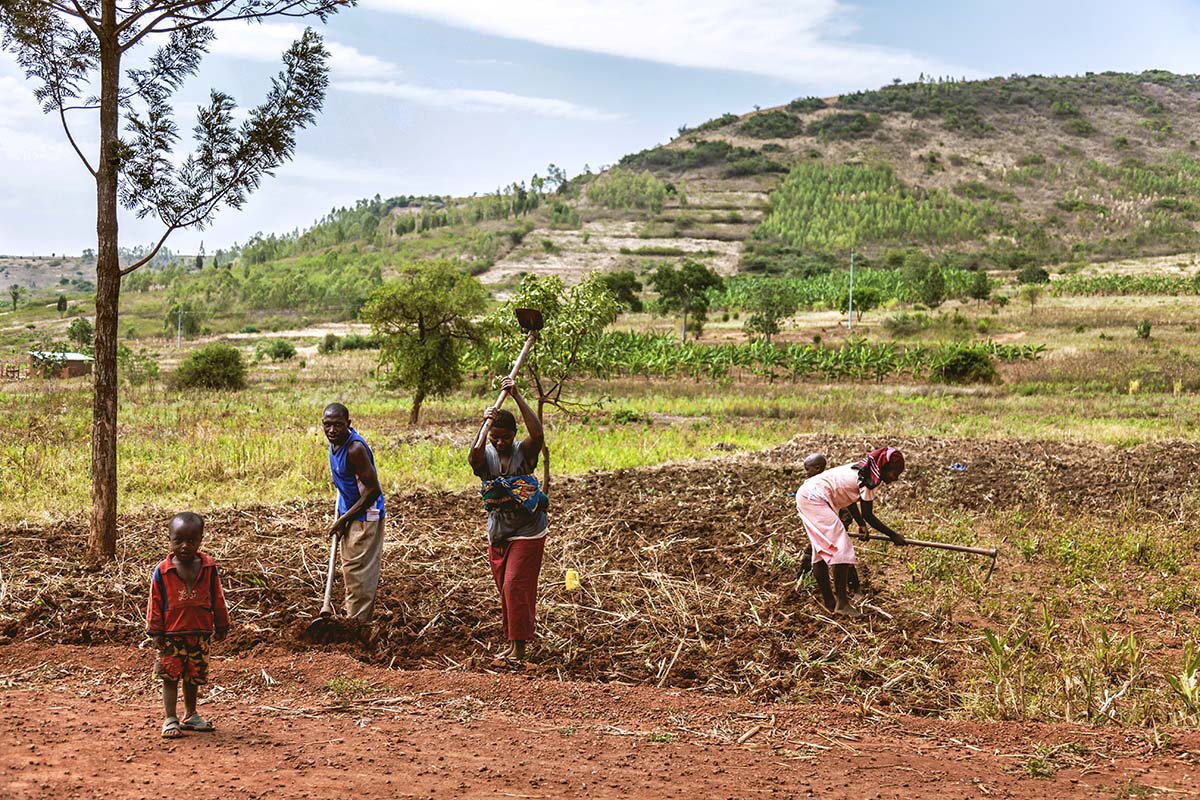SIDS 2014: "Africa's small islands have huge potential, says UNEC"
September 2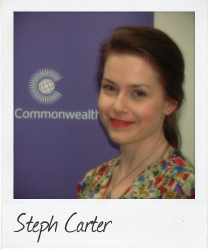 Small island developing states are especially vulnerable to external economic and environmental shocks. At the Third International Conference on Small Island Developing States in Samoa, 1-4 September, the Commonwealth is partnering with the United Nations, governments and international organisations to help build the resilience of these countries.
Small island developing states are especially vulnerable to external economic and environmental shocks. At the Third International Conference on Small Island Developing States in Samoa, 1-4 September, the Commonwealth is partnering with the United Nations, governments and international organisations to help build the resilience of these countries.
The UN Economic Commission for Africa emphasizes the unique nature of African SIDS, reports Steph Carter, 24, a Commonwealth Correspondent from Australia, in an interview with Dr. Carlos Lopes, Executive Secretary of UNECA in Addis Ababa. Dr. Lopes also spoke about climate change and the blue economy, and the potential for private sector partnerships and engagement with other SIDS regions.
For UNECA, what outcomes are you hoping to see this week from the SIDS conference?
This week we want to be able to discuss the future of the African SIDS. The African SIDS have important characteristics, one of them being that geographically they are not grouped together like in the Pacific and Caribbean. Therefore in terms of institutional set up, they differ from other SIDS. I mean, there is one SIDS in Africa that is partly continental, and the others are quite scattered. We also talk very much about the parable of the small- because despite being small, some of our SIDS feature quite prominently in development results.
In terms of the issues currently facing African SIDS, what is UNECA prioritizing?
Climate change is prominent, and in African SIDS we also have the issue of natural disasters. There has been a consistent effort from African SIDS to adapt and change the way they are dealing with this, and they have been doing that- with Mauritius being the leader. African SIDS are now more interested in the blue economy, with most of the SIDS taking advantage of the sea- although they are only awakening now to its potential. The blue economy dimension is still rather new- and that’s why we decided to have a side event on it this week.
Each of the SIDS has also been taking advantage of their geographical location- in the case of Mauritius they have tourism, and in the case of Cape Verde, they are quite influential in making sure their association with the European Union is taken advantage of.
What is the role of youth and women in building resilience in African SIDS?
In terms of youth, all SIDS face the same problem of youth unemployment. What we have been studying is the role of youth, and making sure that industrialization is the next stage of growth that we take advantage of. For that, we need to attract investment and we need to have youth who are well instructed to take these jobs. They have to be trained to be responsive to the needs of the market.
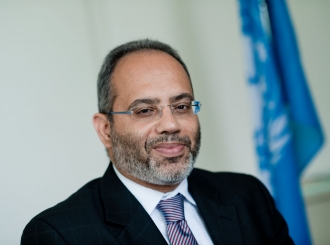 In terms of women it’s a bit more complex, but certainly in some of our SIDS we have a prominence of women in top positions, and we have integrated them into economic activities. This is basically caused by migration because we have the men migrating more than the women, and women take on bigger roles in terms of social functions and economic activities.
In terms of women it’s a bit more complex, but certainly in some of our SIDS we have a prominence of women in top positions, and we have integrated them into economic activities. This is basically caused by migration because we have the men migrating more than the women, and women take on bigger roles in terms of social functions and economic activities.
The theme of this SIDS conference is ‘durable partnerships’. For UNECA, how important is this, and what partnerships are you hoping to promote and forge?
I think SIDS in Africa have really huge potential in terms of the service sector, and they need more sophisticated partnerships with the private sector. I think Mauritius has really been leading the way in this, and all the others have a lot to learn from Mauritius. We want to organize a learning process for all SIDS so they benefit from the Mauritius experience, as they have also been one of the first African SIDS to develop an investment policy, which is now being implemented with great care. I think other SIDS would benefit from looking to Mauritius as their key inspiration from the region.
Of course, we are very interested also in exposing African SIDS to other island development contexts. We organized a national strategy forum in Cape Verde, we are organizing a similar activity in Mauritius, and we’d like to do that with all SIDS.
Do you think that the Commonwealth plays an important role in supporting African SIDS?
Part of the beauty of having this community of SIDS is the extreme experiences between different island states- and so the Commonwealth exposure to Caribbean and the Pacific becomes handy in terms of bringing that experience to Africa. I’m sure it would be of interest for the other regions to learn about SIDS in Africa as well.
